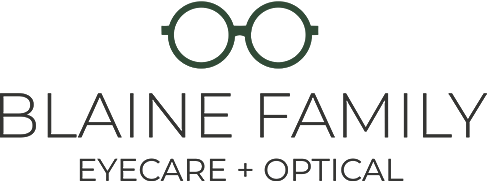
When it comes to vision correction, contact lenses provide an excellent alternative to glasses, offering freedom and convenience for millions of people. However, many don’t realize that proper contact lens fitting is essential for both comfort and eye health. At Blaine Family Eyecare, we prioritize your eye safety and comfort by ensuring a precise and professional contact lens fitting. Here’s why a proper fit matters and how it benefits you.
Your Eyes Are Unique
Just like fingerprints, no two eyes are the same. Each eye has its own shape, size, and curvature, which is why one-size-fits-all contacts don’t work. During a contact lens fitting, our experts measure your eyes to ensure:
The base curve of the lens matches your eye’s curvature.
The diameter of the lens is ideal for full coverage without irritation.
Ill-fitting lenses can cause discomfort, blurry vision, and even potential injury.
Prevent Discomfort and Irritation
Improperly fitted lenses can lead to issues such as:
Dryness: Contacts that don’t fit properly may not allow enough oxygen to reach your eyes.
Redness or irritation: A poorly fitting lens can rub against the eye, leading to discomfort.
Slippage: If the lens is too loose, it may move around or slip off the center of the eye.
A professional fitting ensures the lenses remain stable and comfortable throughout the day.
Protect Your Eye Health
Contact lenses rest directly on the eye’s surface, so an improper fit can result in:
Corneal abrasions: Small scratches caused by friction from an ill-fitting lens.
Infections: Poor fit combined with improper care can create conditions for bacterial infections like keratitis.
Oxygen deprivation: Lenses that don’t allow enough oxygen to the cornea can lead to long-term damage.
By getting a proper fitting, you minimize these risks and maintain healthy eyes.
Correct Vision Effectively
A precise contact lens fitting ensures you achieve clear, accurate vision. During the fitting process, we evaluate your prescription needs and test your vision with trial lenses. If you have conditions like:
Astigmatism (irregular corneal shape)
Presbyopia (age-related near vision changes)
Myopia or hyperopia (nearsightedness or farsightedness),
We can recommend specialty lenses (e.g., toric lenses, multifocal lenses) for the clearest vision possible.
Personalized Lens Options
There are many types of contact lenses available, including daily, biweekly, monthly, or specialty lenses. During your fitting at Blaine Family Eyecare, we’ll discuss your:
Lifestyle: Do you need lenses for sports, computer work, or long wear?
Comfort preferences: Are you looking for lenses with high oxygen permeability or added moisture?
Prescription needs: Do you require specialty lenses for unique conditions?
This ensures you find the right lenses tailored specifically to your lifestyle and vision needs.
Ensure Proper Training and Follow-Up
Fitting a contact lens isn’t just about the measurement; it’s also about teaching you how to wear and care for them properly. During the fitting process, you’ll learn:
How to insert and remove lenses safely.
How to clean and store lenses.
Signs to watch for, such as discomfort, redness, or blurred vision.
We’ll also schedule a follow-up to confirm that the lenses fit properly and provide lasting comfort and clear vision.
Your Vision, Our Priority
Choosing contact lenses without a proper fitting can lead to discomfort and serious eye health concerns. At Blaine Family Eyecare, we combine precise measurements, advanced technology, and personalized care to ensure you get the best fit possible.
If you’re considering contact lenses or experiencing issues with your current lenses, schedule your contact lens exam and fitting with Blaine Family Eyecare. Visit our office in Blaine, Minnesota, or call (763) 717-0072 to book an appointment today.







